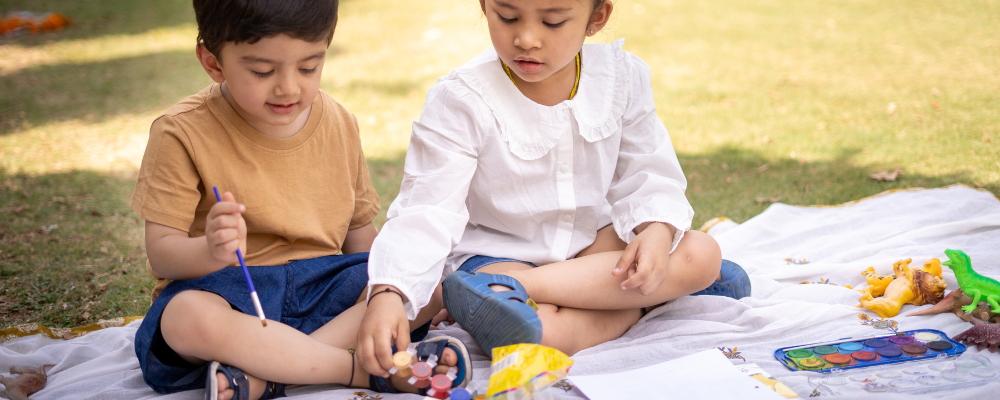In a world that often moves too fast, one of the most important lessons we can offer children is the value of empathy and kindness. These qualities are not just traits children are born with. They are behaviors and mindsets that can be gently taught and nurtured from a very young age.
At Orrchid Montessori House, we believe emotional and social development is just as essential as academic learning. Through the Montessori approach, children learn to recognize their own feelings and those of others. They develop the ability to care, to share, and to respond with kindness.
Let’s explore how you can encourage empathy and kindness in your child during the most formative years of their life.
Why Empathy Matters
Empathy is the ability to understand and share the feelings of another. It is the foundation for strong relationships, conflict resolution, and emotional intelligence. Children who learn to be empathetic are more likely to be cooperative, tolerant, and compassionate.
Kindness is how empathy shows up in action. Whether it’s helping a friend, sharing a toy, or offering a smile, kind acts create a sense of connection and trust.
The Montessori Approach to Social-Emotional Learning
Montessori classrooms are designed to nurture respect, cooperation, and independence. From an early age, children are given opportunities to interact with peers in a peaceful, thoughtful environment. They learn to take turns, resolve small conflicts, and care for their classroom and each other.
Grace and courtesy lessons are a core part of the Montessori curriculum. These are practical lessons on how to greet others, offer help, say please and thank you, and express feelings respectfully. These lessons build emotional awareness and respectful communication.
Simple Ways to Teach Empathy and Kindness at Home
Model It Daily
Children are always watching. The way you treat others is the most powerful example for them to follow. Speak kindly to your child and to others. Show empathy when someone is upset. Use phrases like “I understand how you feel” or “Let’s think about how we can help.”
Talk About Feelings
Help your child recognize and name emotions. You can say, “It looks like you’re feeling sad because the game ended” or “You seem excited to see your friend.” This builds emotional vocabulary and encourages self-awareness.
Ask your child how others might be feeling. “How do you think your friend felt when you shared your toy?” or “What can we do to help someone who is upset?”
Read Stories About Empathy
Books are a wonderful way to explore feelings and kindness. Choose stories where characters face challenges, express emotions, and help one another. Pause to ask, “How would you feel in that situation?” or “What could they do to be kind?”
Encourage Helping
Even young children love to help. Let them assist with simple tasks like setting the table, feeding a pet, or tidying up. Encourage them to help friends or siblings with small acts of kindness.
You can also involve them in community efforts, like donating toys, making cards for elders, or picking up litter in the park.
Praise Kind Behavior
When you notice a kind act, acknowledge it. “That was kind of you to wait for your turn” or “I saw how gently you helped your friend when she dropped her crayons.” Positive reinforcement helps children recognize the value of empathy.
Create Opportunities for Cooperation
Games, role play, and shared chores are great ways to teach collaboration. Activities like building something together or caring for a plant as a team build social bonds and shared responsibility.
Be Patient and Consistent
Teaching empathy is not about a one-time lesson. It is a gradual process that grows through everyday interactions, modeling, and intentional guidance. Some days will be easier than others. What matters is consistency, warmth, and a safe space for your child to express themselves and learn from their mistakes.
Final Thoughts
Empathy and kindness are seeds we plant in childhood that blossom into strong character in adulthood. At Orrchid Montessori House, we create an environment where compassion is part of daily life, not just a lesson. When children are taught to care for others, they not only become better learners, but also better people.
As parents and educators, our greatest gift to children is teaching them how to be kind, how to listen, and how to see the world through someone else’s eyes.

